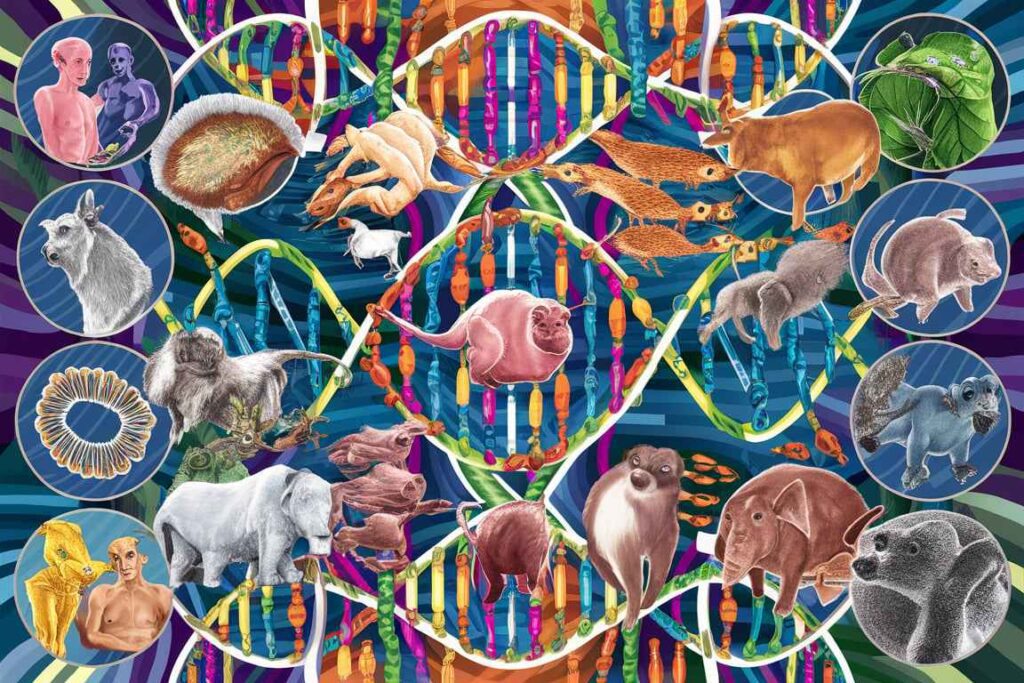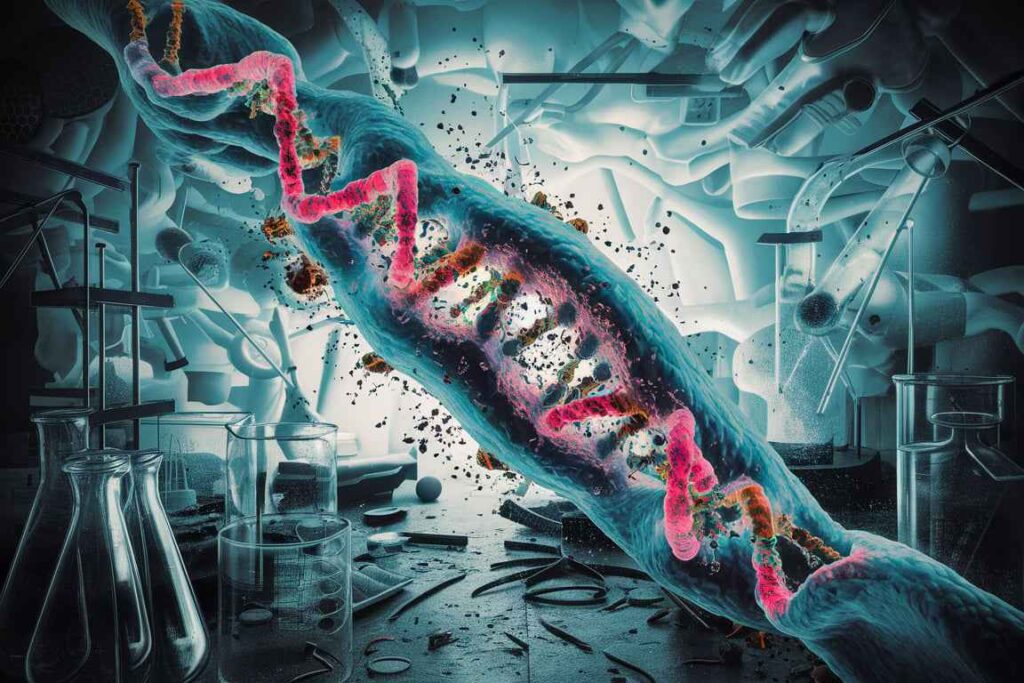Genetic variation is essential for evolution as it provides the raw material upon which evolutionary processes, such as natural selection, act. Without genetic variation, populations cannot adapt to changing environments, and evolution would not occur.
Table of Contents
Source of genetic variation

1. Mutations
Mutations are random alterations to an organism’s DNA sequence.
Causes include mistakes during DNA replication, as well as exposure to radiation, chemicals, or viruses.
Impact: Mutations can generate new alleles (gene variations). While many mutations are neutral or harmful, some can confer advantageous features that improve an organism’s fitness.
2. Recombination:
Recombination happens during meiosis in sexually reproducing organisms, when homologous chromosomes exchange genetic information.
Impact: This mechanism shuffles genes and generates new allele combinations, which contributes to offspring genetic diversity.
3. Gene Flow:
Definition: Gene flow, often known as migration, is the movement of individuals and genetic material from one group to another.
Impact: It provides new alleles into a population, boosting genetic diversity and potentially altering allele frequencies.
4. Genetic Drift:
Definition: Genetic drift is the change in allele frequencies in a population due to random sampling of organisms.
Impact: It has a more significant effect in small populations and can lead to the loss of genetic variation.

Role of Genetic Variation in Evolution
1. Adaptation:
Genetic variation allows populations to adapt to changing environments. When environmental conditions change, certain genetic variations may confer a survival advantage.
Example: In a population of insects, a mutation that confers resistance to a pesticide will increase in frequency if that pesticide is used widely.
2. Speciation:
Genetic variation is crucial for the formation of new species. When populations of the same species become isolated, they accumulate genetic differences over time.
Example: Darwin’s finches on the Galápagos Islands evolved different beak shapes to exploit different food sources, eventually leading to speciation.
3. Population Resilience:
Populations with a high genetic diversity are more resistant to environmental change and disease. They have a larger set of characteristics that may help some people survive in new environments.
For example, a diversified plant population is more likely to include individuals who are resistant to a new pathogen.
4. Fitness and survival:
Individual fitness levels differ due to genetic variance. Fitness is an individual’s capacity to survive and reproduce.
For example, in an animal community, certain individuals may carry a genetic feature that allows them to dodge predators more effectively, improving their chances of survival and reproduction.
Examples of Genetic Variation Driving Evolution:
1. Peppered Moth (Biston betularia)
- Scenario: During the Industrial Revolution, dark-colored (melanic) moths increased in polluted places because they were better camouflaged against soot-darkened trees, while light-colored moths were more common in cleaner areas.
- Outcome: This change in allele frequency was due to natural selection acting on genetic variation.
2. Antibiotic Resistance in Bacteria:
- Scenario: Bacteria can develop mutations that confer resistance to antibiotics. When antibiotics are used, resistant bacteria survive and reproduce.
- Outcome: The frequency of resistant alleles increases in the bacterial population, illustrating evolution through natural selection.
3. Sickle Cell Anemia and Malaria:
- Scenario: The sickle cell allele provides resistance to malaria. In regions where malaria is prevalent, the sickle cell trait is more common.
- Outcome: This demonstrates how genetic variation can lead to increased fitness in specific environments, driving evolution.

Frequently Asked Question
Define Gene Flow
Gene flow, often known as migration, is the movement of individuals and genetic material from one group to another. It provides new alleles into a population, boosting genetic diversity and potentially altering allele frequencies.
What are role of Genetic Variation in Evolution?
The role of Genetic Variation in Evolution are:
1. Adaptation
2. Speciation
3. Population Resilience
4. Fitness and survival
Related Article
Types and characteristics of antigen: Antigenicity and Immunogenicity

